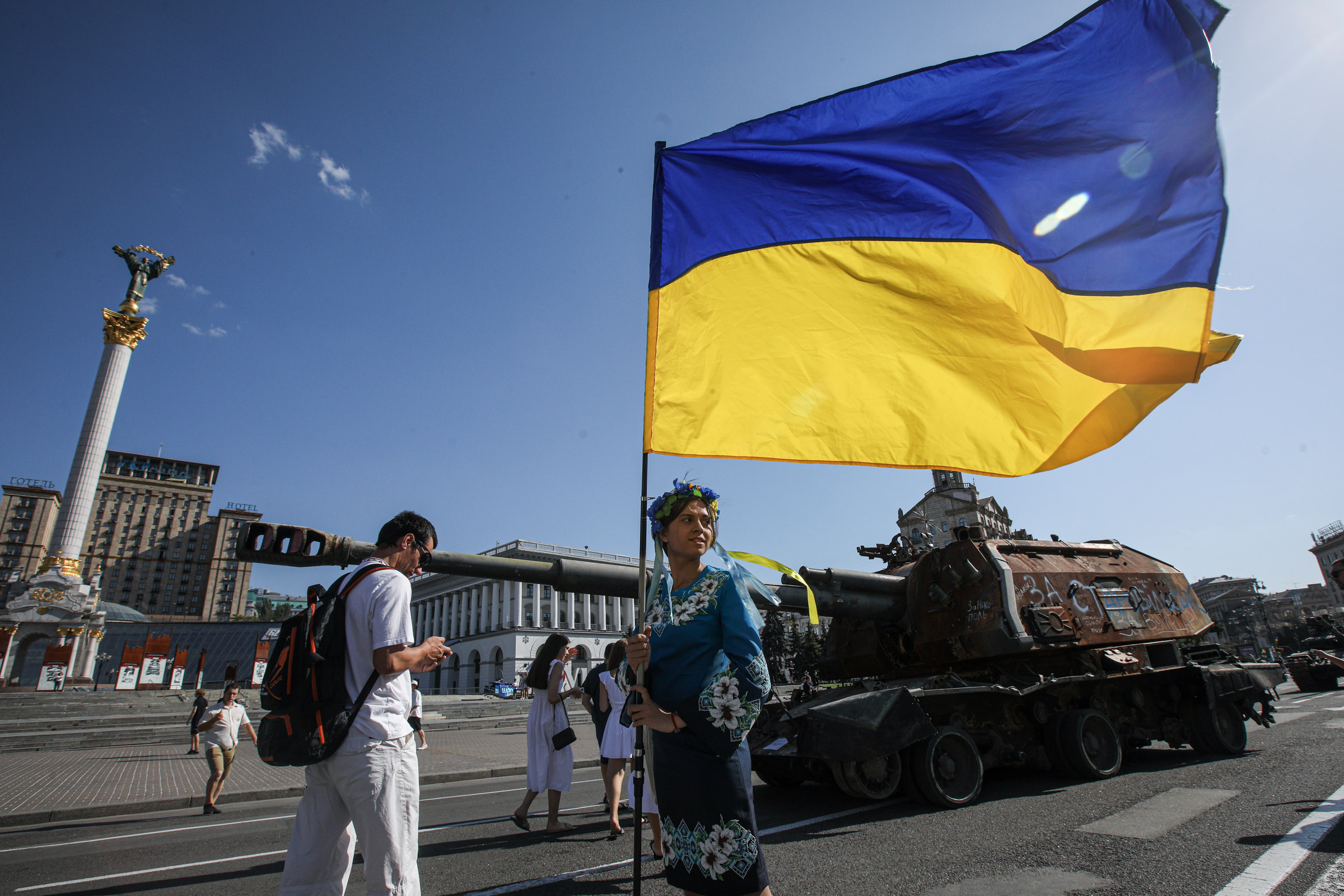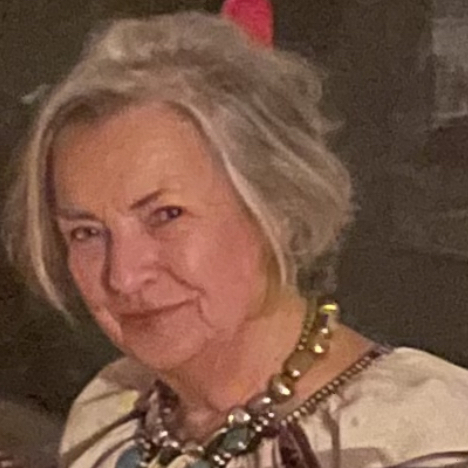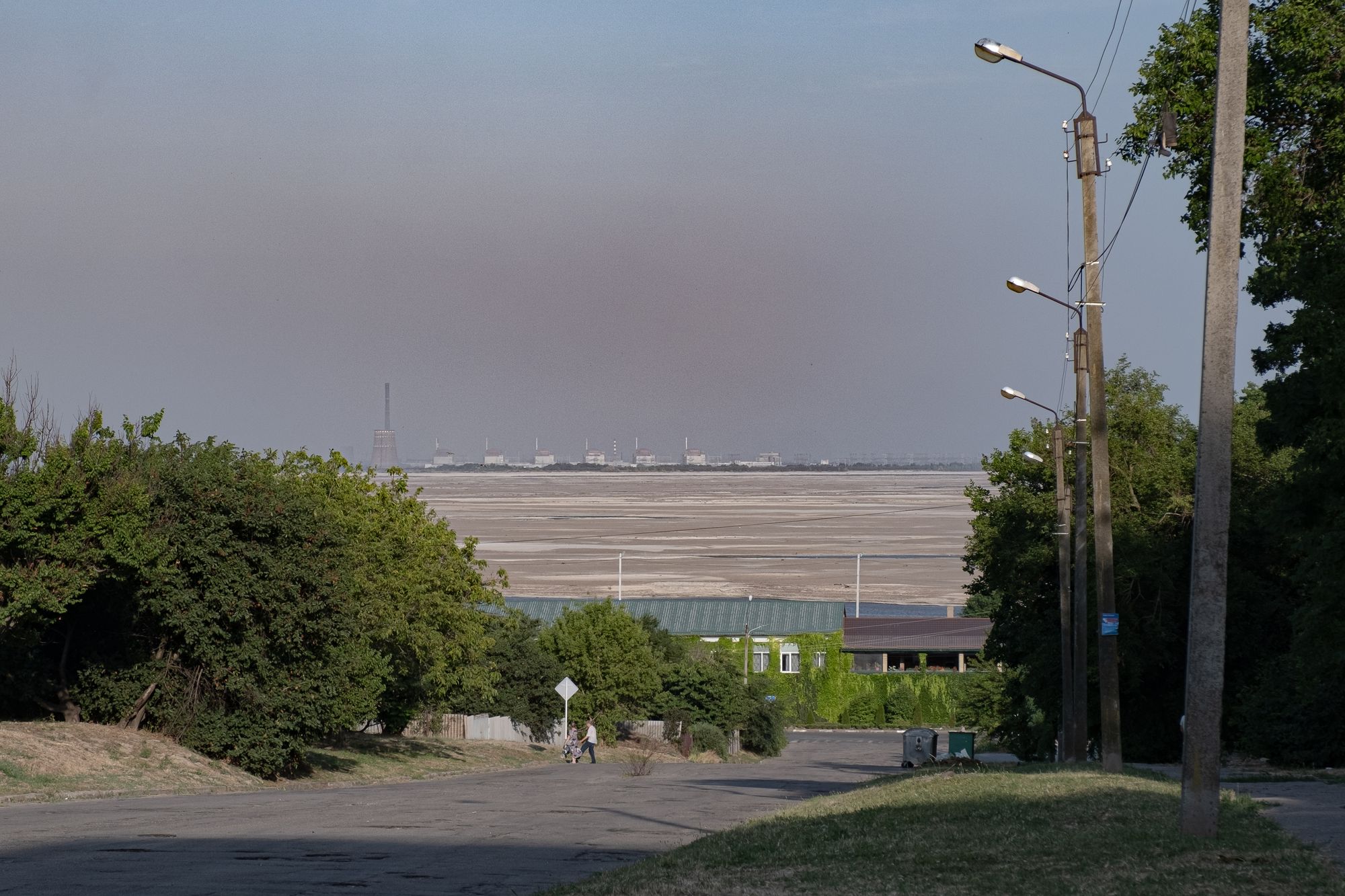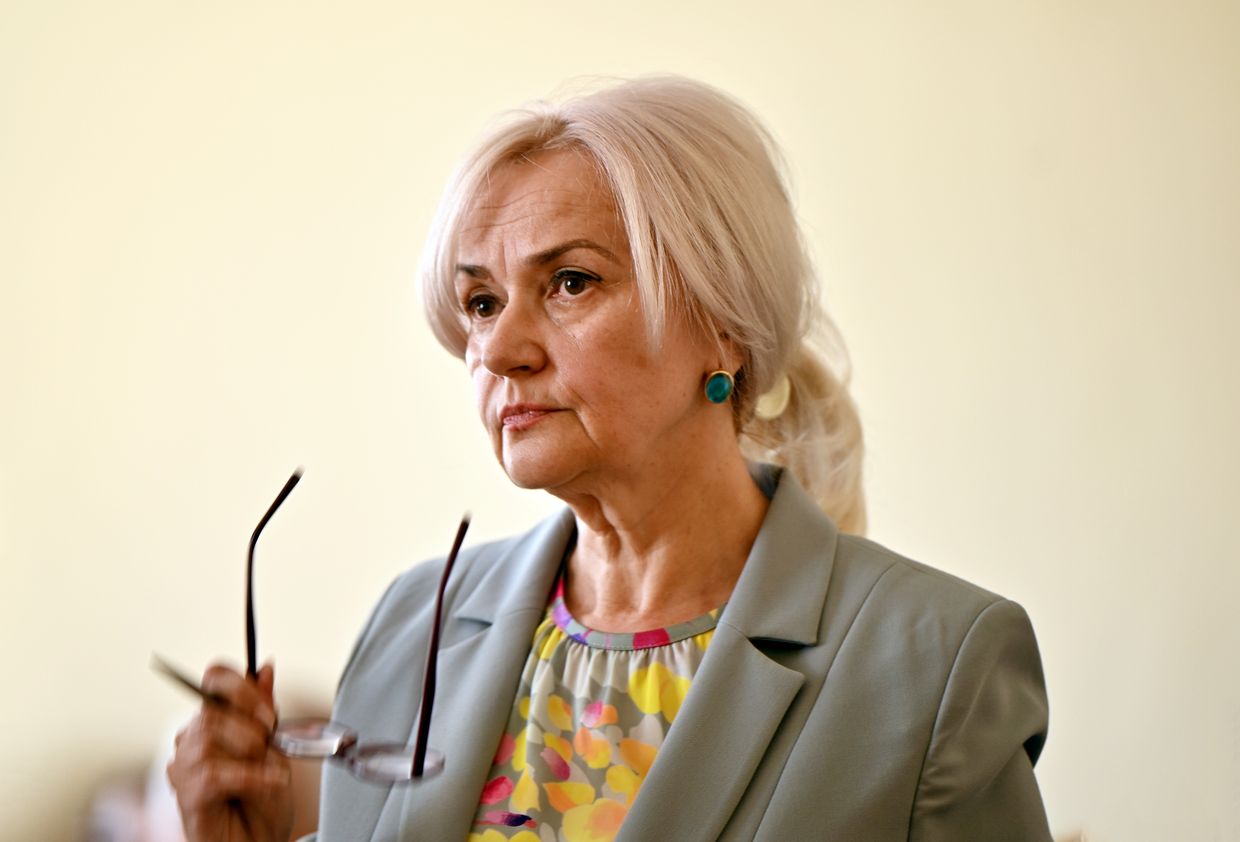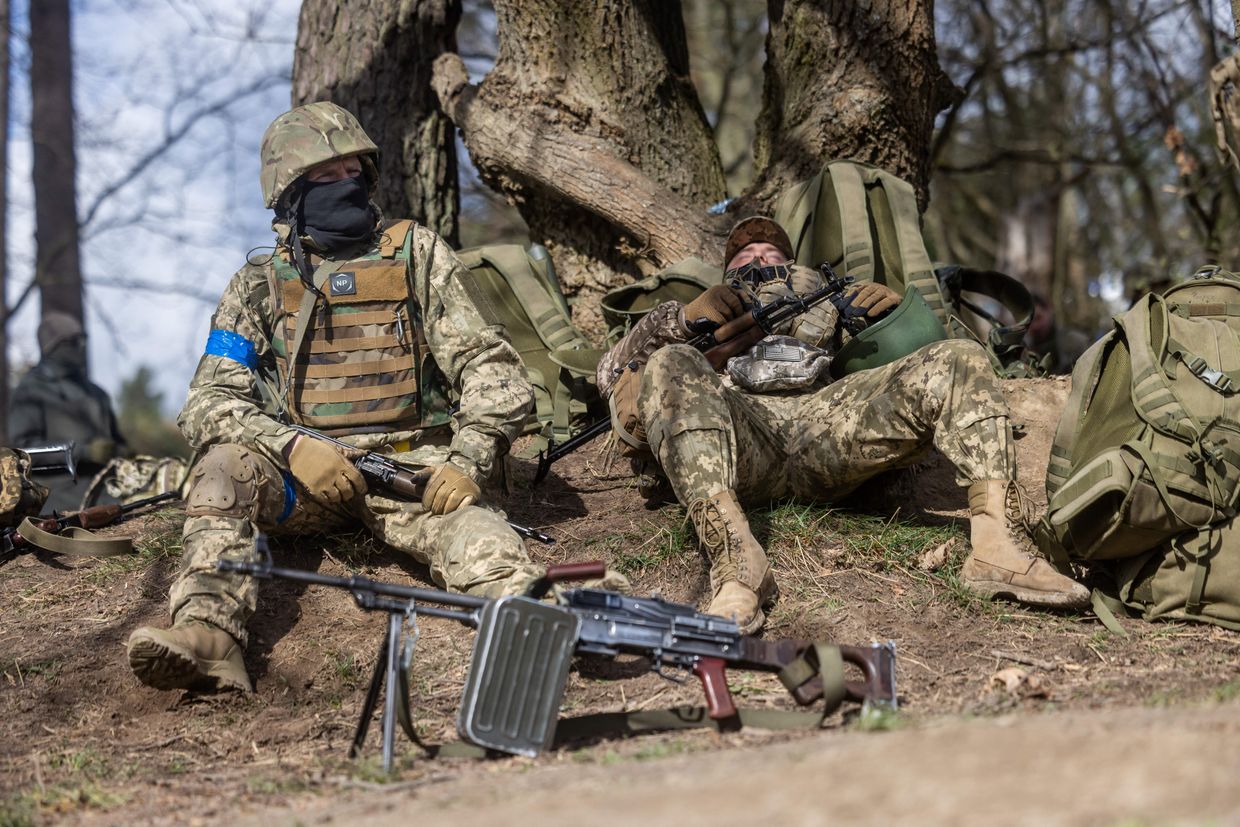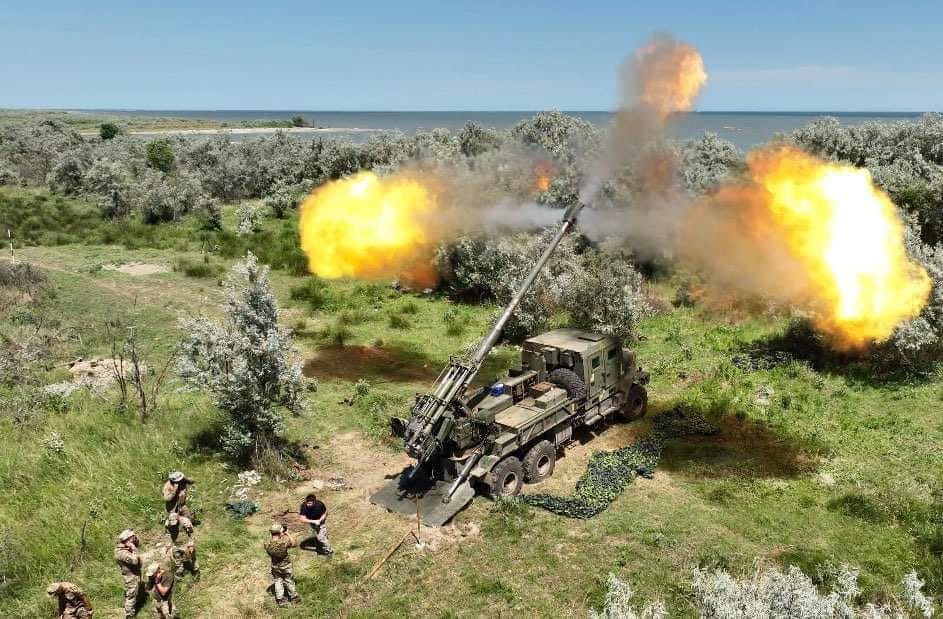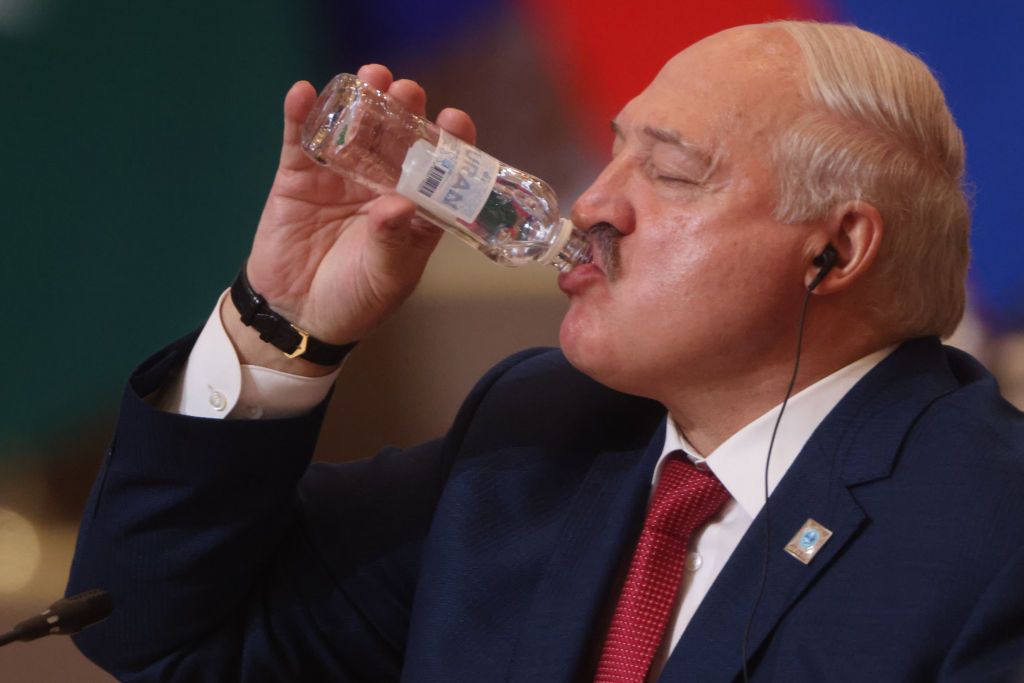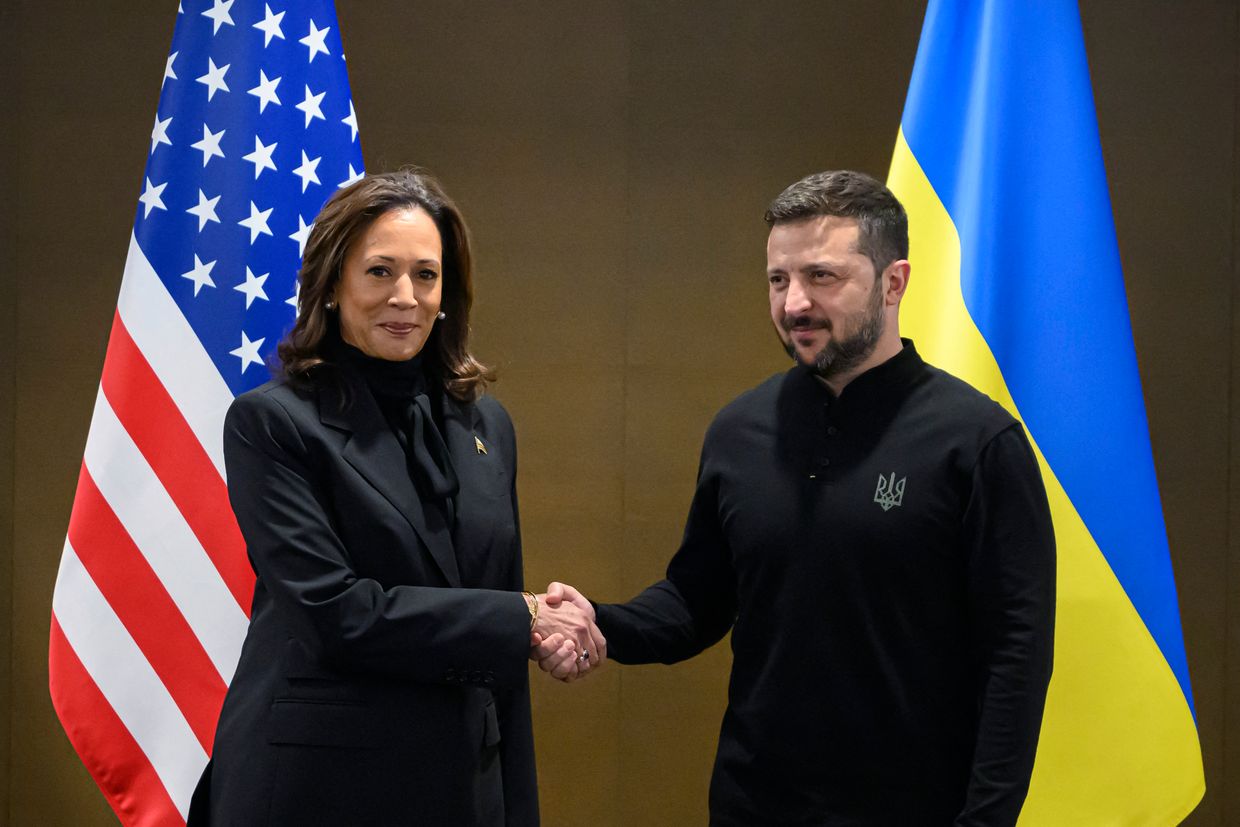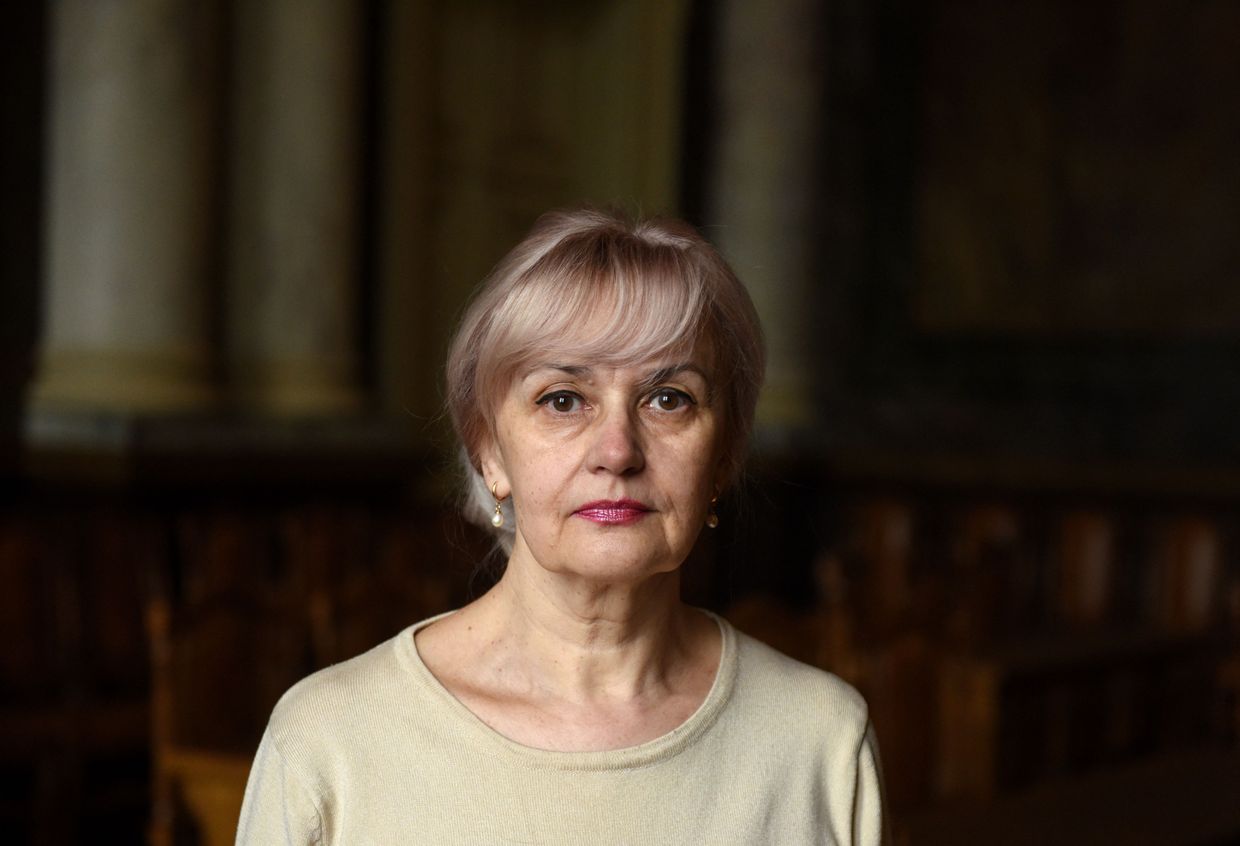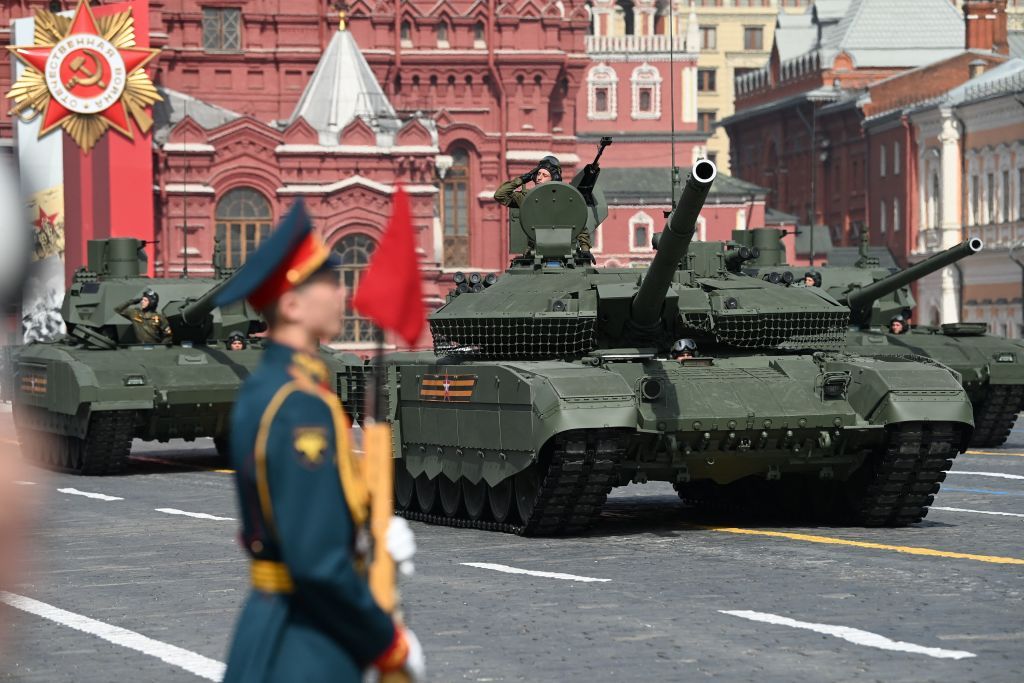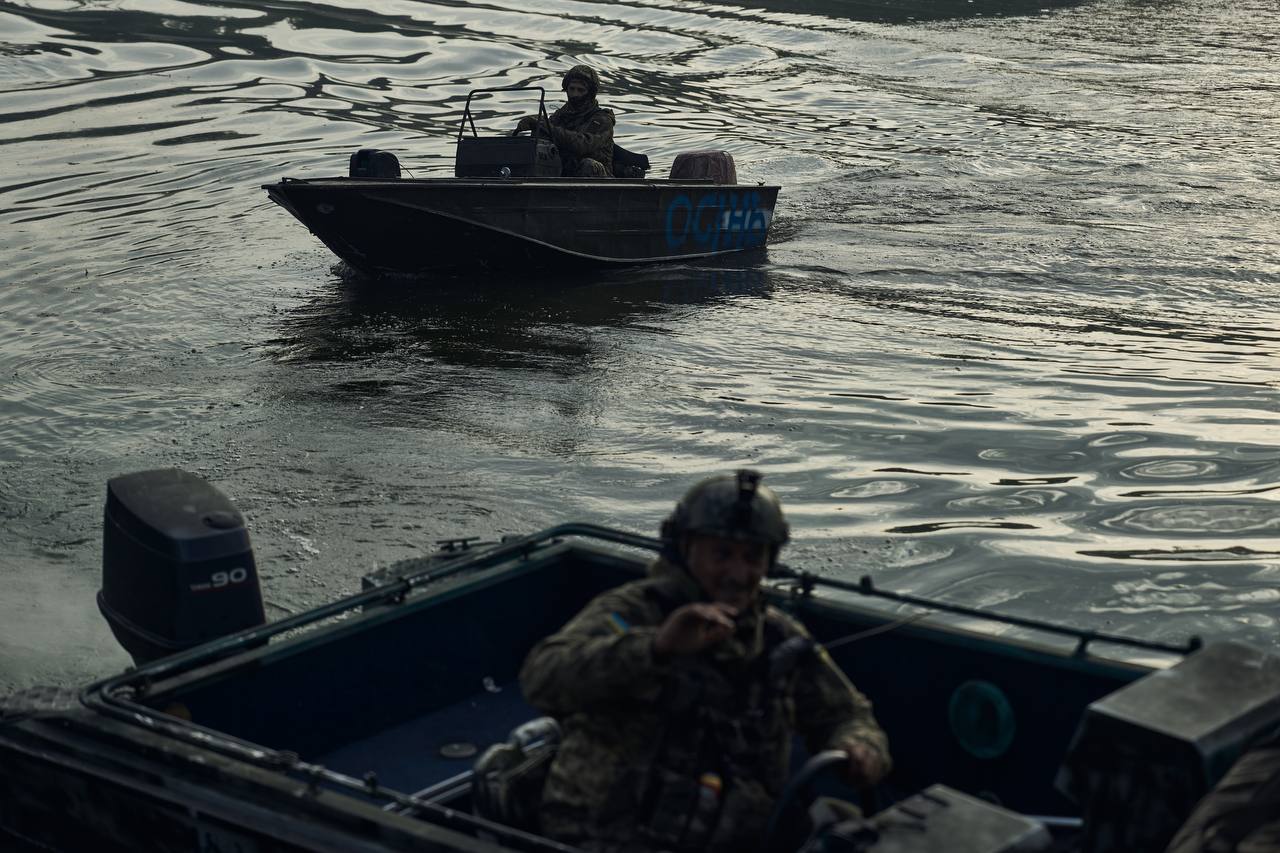A woman holds a Ukrainian flag in central Kyiv where damaged Russian military vehicles are displayed on Aug. 24, 2022, Ukraine's Independence Day. (Kostyantyn Chernichkin)
Editor’s Note: The opinions expressed in our op-ed section are those of the authors and do not purport to reflect the views of the Kyiv Independent.
It appears as though Ukraine’s counteroffensive in the south may lead to the country’s victory over Russia’s horrific war aimed at preventing Ukraine from a democratic path.
Russia will have to pay a hefty price for its brazen disregard for international law and the devastation of human lives and infrastructure. It will also have to change.
The West will need to change, too.
Its high regard for the Russian state will require serious recalibration. This time, unlike in the past, Russia’s punishment must be commensurate with its crimes.
Previous rationalizations, economic imperatives, and Western naivete and ignorance regarding Russia must end with this war. Catering to its puffed-up greatness and excuses of security must end.
Russia’s threats of nuclear annihilation are frightening, but they must be tempered through the recognition that Moscow is a braggart and Washington, which is very much on Team Ukraine, has nuclear superiority.
Russia’s changes must begin with the creation of a new government and a commitment to new values for the sake of both itself and the world.
To start, Russian President Vladimir Putin must go – whether he resign or be deposed is Russia’s call.
Next, Putin’s draconian anti-human rights laws, such as a prescribed 15 years in prison for dissent, must be changed as a prerequisite for free and fair elections in Russia. This would also allow opposition politicians, such as Alexander Navalny or Vladimir Kara-Murza, to run for office. This will require a democratically oriented Duma that is not intent on eliminating Russia’s independently-minded citizens and neighbors.
Russia’s return to the global community will be laborious and difficult.
It will take time for new political parties to form and prepare for elections. Decisions must be made regarding the various regions under Russia’s control, such as Chechnya, Moldova’s Transnistria, and Georgia’s Abkhazia and South Ossetia.
Russia’s changes must include demilitarization and denuclearization to prevent future threats and acts of war.
Allowing Russia to get by with superficial democratic changes – as it did following the collapse of the Soviet Union – is dangerous and unacceptable.
Russia will backslide.
Gargantuan regime change will require an interregnum period to ensure the transition is peaceful and adheres to international law. An international organization facilitating the post-victory peace talks could perhaps be tasked with creating a provisional government to govern Russia during this period.
For political change to last, the Russian soul will have to change.
Putin’s propaganda has propagated the doctrine of Russkiy Mir, the false claim that Russia has a right to rule regions that speak the Russian language, both at home and abroad.
Used during the Soviet Union to “Russify” its republics, the concept can be traced back to the 18th-century tsarist regime in Ukraine, where the phrase “Ukraine does not exist, never did, and never will” was used in full force. In 2022, this doctrine has been employed with vigor by Russian proxies in Ukraine’s occupied territories.
Putin’s idealogues, such as Alexander Dugin, turn history on its head with false claims that discredit Ukraine’s existence as a nation. These views, in turn, dominate mass and social media and are treated by the majority of Russians and by Putin as Gospel.
This must change to ensure to prevent any attempts at repetition.
The shifts that took place after the collapse of the Soviet Union were half measures used to deal with a dictatorship of unparalleled evil. Mass murders, engineered famines, genocides, forced-labor camps, abject poverty, and the blatant disregard for international law were swept away by Russian sympathizers in the West.
Punishing the Kremlin for its atrocities was deemed unnecessary, too difficult. Russia was embraced and secured control of the Soviet Union’s nuclear power.
Today, Putin’s delusional justifications for his full-scale war against Ukraine are the consequences of the West’s lack of understanding of what it was dealing with.
It’s a lesson we dare not repeat.
A prerequisite for moving forward after Ukraine’s victory is for Russia to adopt a new code of values. A renewed commitment to the UN Declaration of Human Rights is a good place to start. Progress needs to be monitored as the de-escalation of sanctions should depend on it.
This time, the West must heed the warnings of Ukraine and other countries that have lived under Russia’s heel.
Former U.S. Commanding General U.S. Ben Hodges sums it up:
“It seems to me that we are seeing the beginning of the end of the Russian Federation as it looks today. We need to prepare for this… we were not prepared for the end of the USSR.”


